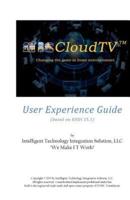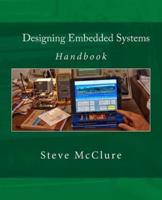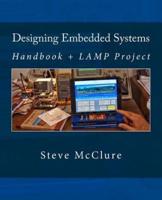Publisher's Synopsis
This Guidebook reviews the Software Development and Engineering Principles involved in the Design of Embedded Computer Systems.
The reason behind developing this book can be answered by the following question. What does an embedded software engineer produce? Now most people would say 'prototypes' and this might seem like the correct answer but it is not. The correct answer is that the engineer produces documentation, documentation that shows other people how to understand and build the product. Now imagine that you are a software engineer who has newly joined the company and you have been given the unenviable task of maintaining an existing product. Why was this work given to the new guy? The answer is that no one else in the company wanted to tackle this project. Why? Because there is no documentation. So to figure out what the product does and to fix the bugs the new guy (or gal) has to reverse-engineer the source code. So the money that management thought they saved when some code was quickly thrown together by a software engineer (who has since left the company) they now find that several times more is being spent to fix up all the bugs and possibly add on some minor enhancement. This type of problem occurs when there is no development procedure. Which brings us to the Guidebook. The Guidebook provides a standard procedure which may be used by the Systems, Software, Embedded, Firmware and Hardware departments. Various design and development documents are produced at specific points in the project and are passed out for review prior to being used by other team members. By having this consistency the entire team now know which design elements will be produced and the need for implementing any reverse-engineering will be eliminated. Product costs for maintenance will be greatly reduced. Manufacturing and Test departments will now have the necessary details with which to complete their work. For shouldn't the designers who intuitively understand the product be the ones to write down their knowledge such that it can be passed on to others? By presenting these steps in the form of a Guidebook which is distributed to the engineering team, it then identifies the documents that are to be generated, when they should be produced, who should create them and who should be involved in the review process. This keeps the entire team synchronized, fully aware of their responsibilities. Now some companies do have such procedures but they are long-winded and stored away in some unknown location on a harddrive. But a bright red Guidebook that clearly spells out the development process. Now wouldn't that be worth having? [Prease refer to The Handbook version which includes the information presented in The Guidebook but in addition provides detail gleaned by the author during his 30] years of experience in this field of engineering.] [Please refer to The Handbook ] LAMP Project version which includes an additional embedded Linux project to implement a Web-based Home Control / Security System (source code listing provided).] [Use the Author's Link to obtain access to these and other books.]







